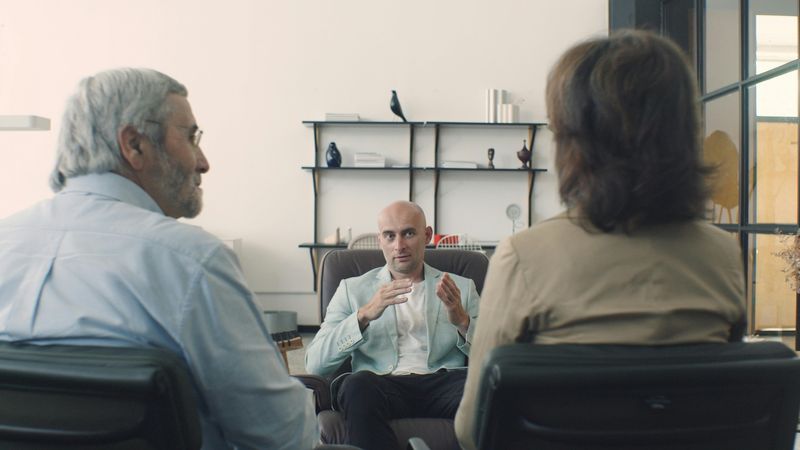When the last child leaves home, couples often find themselves standing in a quiet house, wondering who they are without the daily demands of parenting. This transition can feel both liberating and unsettling as you rediscover each other and yourselves. The empty nest phase offers a unique opportunity to rebuild your relationship on new terms, but it requires intention, honesty, and patience to navigate successfully.
1. Your Identity Beyond Being a Parent Matters Now More Than Before
For years, you might have introduced yourself as someone’s mom or dad first. That role consumed your time, energy, and sense of self. Now comes the beautiful challenge of remembering who you were before kids and discovering who you want to become next.
This journey back to yourself isn’t selfish—it’s necessary. Your hobbies, dreams, and personal goals deserve attention again. Whether it’s returning to painting, taking up guitar, or finally writing that book, pursuing your passions makes you a more fulfilled person and partner.
Rediscovering your individual identity strengthens your relationship because you bring fresh energy and enthusiasm home.
2. You and Your Partner May Grieve the Loss of the Parenting Role
Grief doesn’t only come with death—it arrives when any significant chapter closes. Watching your kids drive away to their own lives can trigger unexpected sadness, even when you’re proud of them. Both partners might experience this loss differently, with one feeling relieved while the other struggles with emptiness.
Acknowledging this grief together creates space for healing. Talk about the moments you miss, the routines that feel strange now, and the fears about what comes next. Some days will feel harder than others, especially during holidays or milestones.
Give yourselves permission to mourn this transition while also celebrating the incredible job you did raising independent humans.
3. Communication Has to Shift—You Won’t Talk About Kids All the Time
Remember those endless conversations about soccer schedules, report cards, and college applications? Suddenly, that default topic vanishes, leaving awkward silences at the dinner table. Many couples realize they’ve forgotten how to talk about anything else.
Building new conversation patterns takes conscious effort. Ask about your partner’s day, their thoughts on current events, or their dreams for the future. Share stories from work, interesting articles you read, or memories from your early relationship.
The silence isn’t a sign your relationship is broken—it’s simply adjusting to a new normal where you’re learning to be interesting to each other again.
4. Emotional Intimacy Becomes More Central
Without kids as the connecting thread, emotional closeness matters more than ever. Surface-level interactions won’t sustain your relationship through this new phase. You need deeper conversations about feelings, vulnerabilities, and what truly matters to each of you now.
Building emotional intimacy means showing up authentically, even when it feels uncomfortable. Share your fears about aging, your excitement about newfound freedom, or your confusion about identity. Listen without trying to fix everything your partner expresses.
Creating rituals like evening walks or weekly check-ins helps maintain this emotional connection. Vulnerability strengthens bonds in ways that busyness never could.
5. Physical and Romantic Intimacy May Need Re-Discovery
Years of exhaustion, interrupted sleep, and kid-centered schedules probably put romance on the back burner. Now you have privacy and time, but rekindling physical connection might feel awkward at first. Bodies have changed, confidence may have shifted, and old patterns might not work anymore.
Approaching intimacy with curiosity rather than expectation helps. Flirt like you did when dating, plan romantic evenings without pressure, and communicate openly about what feels good now. Physical affection doesn’t always mean sex—holding hands, cuddling, and gentle touches rebuild connection too.
Patience with yourselves and each other transforms this potential awkwardness into exciting rediscovery.
6. Old Issues or Conflicts May Resurface When Busyness Declines
Parenting provided a convenient distraction from unresolved tensions. Perhaps you disagreed about money, felt differently about extended family, or never addressed hurt from years ago. Without the buffer of constant activity, these issues demand attention now.
Facing buried conflicts feels scary but offers real healing opportunities. Avoiding them only builds resentment that poisons your newfound time together. Approach these conversations with humility, acknowledging your part in past problems rather than only pointing fingers.
Some conflicts resolve with honest conversation, while others require professional guidance. Either way, addressing them clears space for genuine connection moving forward.
7. You Each Need Space for Your Individual Growth
Spending all your newfound free time together might sound romantic, but it often breeds frustration. Both partners need room to explore personal interests, friendships, and individual pursuits without guilt or resentment. Healthy relationships balance togetherness with independence.
Encourage your partner to join that hiking club or book group they mentioned. Take that solo trip you’ve been dreaming about. Individual growth doesn’t threaten your relationship—it enriches it by keeping both people interesting and fulfilled.
Trusting each other with separate experiences demonstrates maturity and confidence in your bond. You’ll have more to share when you come back together.
8. Shared Activities and Goals Help Rebuild Connection
While individual pursuits matter, creating new shared experiences gives your relationship fresh energy. Maybe you both want to travel, learn ballroom dancing, volunteer together, or renovate the house. Common goals provide conversation topics, teamwork opportunities, and memories you build side by side.
Start small with weekly date nights or monthly adventures before committing to massive projects. Experiment with different activities until you find what genuinely excites both of you. Not every shared interest will stick, and that’s okay.
The key is intentionally choosing to experience life together rather than just existing in the same house.
9. Flexibility and Patience Are Essential
Adjusting to empty nest life doesn’t happen overnight. Some days feel exciting and full of possibility, while others bring loneliness or frustration. Your partner might adapt faster or slower than you, creating temporary disconnection that tests your patience.
Flexibility means accepting that plans will change, emotions will fluctuate, and not every day will feel perfect. Give yourselves grace during this transition instead of expecting immediate happiness. Celebrate small victories like a great conversation or successful date night.
Remember that you’re both learning a new dance together. Stumbling occasionally doesn’t mean you’re failing—it means you’re human.
10. You’ll Need to Renegotiate Roles and Routines
Who did what when kids lived at home probably won’t work anymore. Maybe one person handled kid duties while the other focused on career. Perhaps household tasks were divided around everyone’s schedules. Now everything needs reconsideration.
Sit down and discuss how you want daily life to look. Who cooks? Who handles finances? How do weekends work? What time do you eat dinner? These seemingly small details shape your daily experience together.
Avoid assuming old patterns should continue simply because they’re familiar. This transition offers a chance to create routines that serve your current needs and preferences.
11. Expressing Gratitude and Appreciation Becomes Powerful
When life was chaotic, you might have forgotten to thank your partner for small kindnesses. Now you have mental space to notice and acknowledge the ways they show love daily. Gratitude transforms ordinary moments into connection opportunities.
Thank them for making coffee, compliment their appearance, or express appreciation for their patience during tough conversations. Specific gratitude means more than generic compliments—mention exactly what they did and why it mattered to you.
Regular appreciation creates positive momentum in your relationship. People naturally want to do more of what gets noticed and valued by their partner.
12. Sometimes Outside Help Like Therapy or Couples Coaching Is Wise
Asking for professional help doesn’t mean your relationship is failing—it shows wisdom and commitment. Therapists and coaches provide tools, perspectives, and safe spaces for difficult conversations that couples struggle to navigate alone. Many relationships benefit from expert guidance during major transitions.
If you’re stuck in negative patterns, feeling disconnected despite efforts, or dealing with serious conflicts, professional support can transform your situation. Even healthy relationships grow stronger with occasional tune-ups from someone trained to spot blind spots.
Think of therapy like maintaining a car—regular check-ups prevent bigger problems and keep everything running smoothly.
13. This Phase Can Be a Fresh Beginning Rather Than an Ending
Society often frames empty nest as loss, but it’s actually an incredible opportunity for reinvention. You have freedom, resources, and life experience that your younger selves lacked. This chapter can be the best one yet if you approach it with optimism and intention.
Many couples report deeper satisfaction in their relationship after kids leave because they finally have time to focus on each other. Travel becomes easier, spontaneity returns, and you can prioritize your partnership without guilt.
Instead of mourning what’s gone, celebrate what’s possible now. Your love story isn’t ending—it’s just entering an exciting new chapter.













